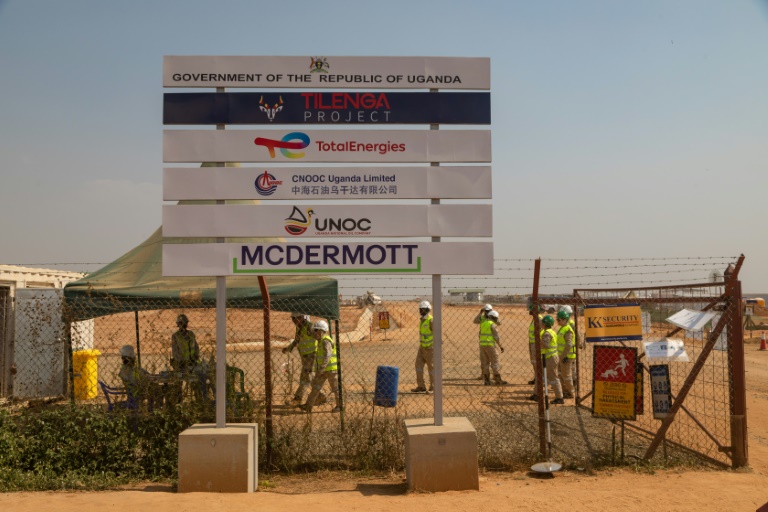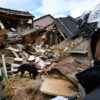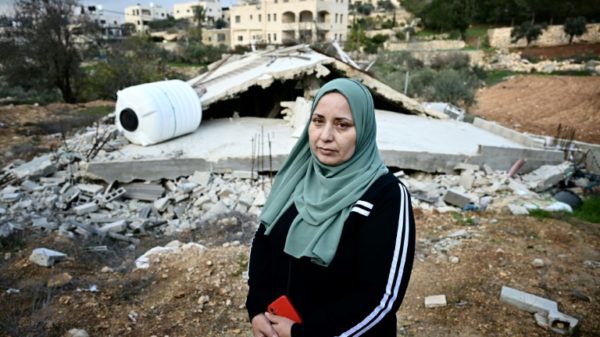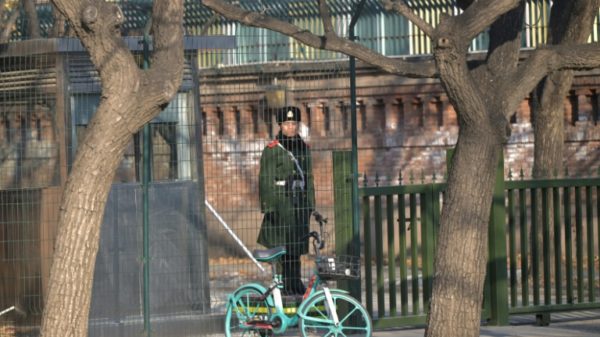French energy giant TotalEnergies said Thursday it had launched a review of its land acquisition practices for controversial $10-billion projects in Uganda and Tanzania slammed by environmentalists.
TotalEnergies is pushing ahead with its Tilenga drilling project in Uganda and the 1,443-kilometre (897-mile) East African Crude Oil Pipeline (EACOP) to transport it to the coast in Tanzania in the face of opposition from activists and environmentalists.
“This mission will evaluate the land acquisition procedures implemented, the conditions for consultation, compensation and relocation of the populations concerned, and the grievance handling mechanism,” the statement said, adding that a report would be submitted by April.
Tilenga targets oil under the Murchison Falls nature reserve in western Uganda with a planned 419 wells, triggering fears for the region’s fragile ecosystem among the people who live there and environmentalists.
Drilling began in mid-2023 and production is slated for 2025.
TotalEnergies, which is working with Chinese oil company CNOOC on the project, says its 6,400-hectare acquisition plan affects “19,140 households and communities owning or using plots of land and includes the relocation of 775 primary residences”.
“To date, 98 percent of the households concerned have signed compensation agreements, 97 percent have received their compensation, and 98 percent of households to be relocated have taken possession of their new homes,” the company added.
Resistance to the project has rallied opponents of fossil fuel development as well as conservationists and those fearing the effect on local populations.
Human Rights Watch called in July for the plans to be halted, saying in a report that it had already “devastated thousands of people’s livelihoods in Uganda”.
The oilfield would “ultimately displace over 100,000 people”, it charged.
– Legal battles –
Four environmental groups — Darwin Climax Coalitions, Sea Shepherd France, Wild Legal and Stop EACOP-Stop Total in Uganda — filed a criminal complaint in France in September accusing TotalEnergies of “ecocide”.
A first case filed in 2019 was thrown out last year by a Paris court, while TotalEnergies says the Tanzania-based East African Court of Justice has also rejected a complaint.
Other aid groups and 26 individual Ugandans filed a further French civil case in June calling for “reparations”.
TotalEnergies said Thursday it had named Benin’s former Prime Minister Lionel Zinsou to lead the land acquisition assessment, calling him a “recognised expert in African economic development”.
Zinsou has worked with TotalEnergies in the past through his consulting company.
The French branch of Friends of the Earth, which is also participating in the legal battle against the projects, expressed scepticism about the review.
“They are trying to get names which can help whitewash their image, but you’ve got to look beyond the names to concrete things like their expertise and what methodology is used,” said Juliette Renaud, who heads up the group’s campaigns against multinationals.
A TotalEnergies spokesman said the review wasn’t a public relations exercise.
“We’re doing this for the people concerned, not for our image,” he said.
TotalEnergies CEO Patrick Pouyanne acknowledged last year that company hadn’t done as well as it could have concerning the relocations.
“The subject of relocations should have been handled earlier,” he said in an interview with French business magazine.














